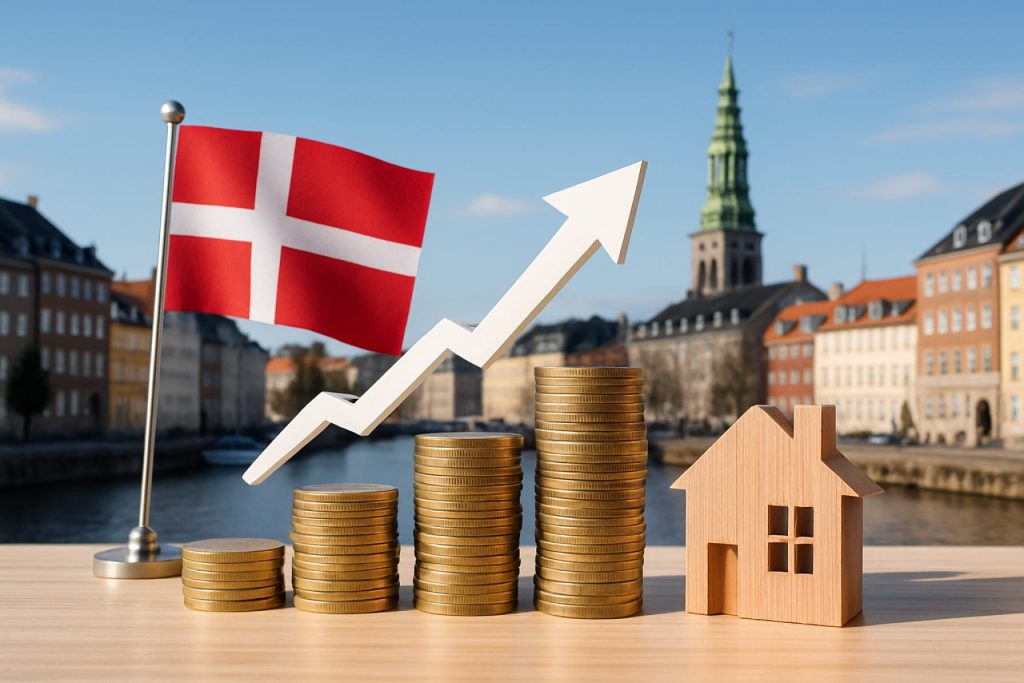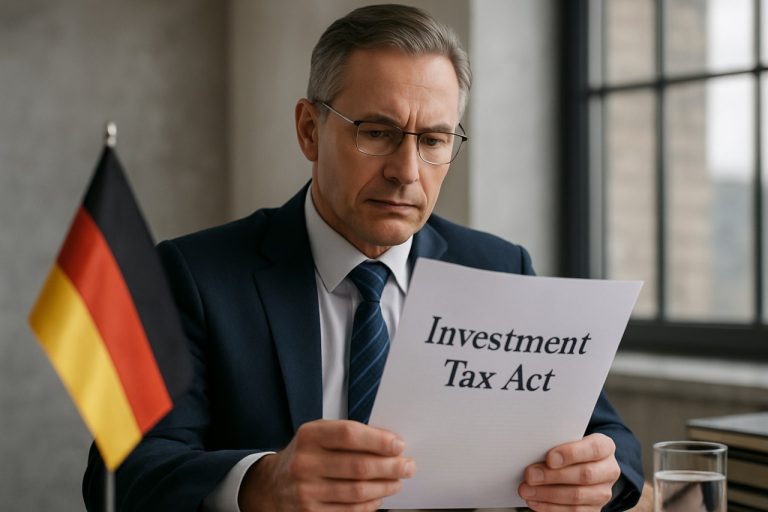
Table of Contents
- Executive Summary: The Danish Investment Landscape in 2025
- Economic Overview: Macroeconomic Strengths and Key Growth Drivers
- Legal Framework: Corporate Structures, Foreign Ownership & Investment Laws
- Taxation in Denmark: Current Rates, Incentives, and Upcoming Reforms
- Compliance & Regulatory Environment: Navigating Local Requirements
- Key Investment Sectors: Technology, Green Energy, Life Sciences, and More
- Government Initiatives & Incentives: Support for Foreign Investors
- Risks & Challenges: Market Entry, Competition, and Mitigation Strategies
- Statistical Snapshot: FDI Inflows, GDP Growth, and Sector Performance (2025–2030)
- Future Outlook: Trends, Opportunities, and Projections for 2025–2030
- Sources & References
Executive Summary: The Danish Investment Landscape in 2025
As of 2025, Denmark continues to solidify its reputation as one of Europe’s most attractive destinations for foreign and domestic investment. The country’s investment landscape is underpinned by a stable political environment, robust legal frameworks, and a highly skilled workforce. In recent years, Denmark has consistently ranked among the top nations in global competitiveness and ease of doing business, supported by transparent governance and a commitment to digital innovation.
Key legislative developments have shaped the investment climate. The Danish government has maintained its focus on open markets while enhancing screening mechanisms for foreign direct investment (FDI) to protect national security interests. The EU FDI Screening Regulation is fully implemented in Danish law, providing clear compliance expectations for investors. In 2021, the Danish Business Authority introduced a mandatory notification regime for certain sectors, and this framework is anticipated to remain integral through 2025, with periodic reviews to address evolving risks and opportunities.
Statistically, Denmark has demonstrated resilience amid global economic uncertainties. According to Statistics Denmark, FDI inflows remained robust in 2023 and early 2024, with total inward direct investment stock exceeding DKK 1.1 trillion. Sectors such as renewable energy, life sciences, and information technology continue to draw significant capital, bolstered by Denmark’s strong policy incentives for green and innovative industries. The Danish government’s Climate Action Plan and the ambition to achieve a 70% reduction in greenhouse gas emissions by 2030 have catalyzed investment in sustainable infrastructure and clean technologies.
Compliance and regulatory transparency are hallmarks of Denmark’s business environment. The Danish Financial Supervisory Authority enforces strict standards for anti-money laundering, corporate governance, and financial reporting. Companies and investors benefit from efficient dispute resolution and a reliable judicial system, as overseen by the Danish Courts. In addition, Denmark’s alignment with EU directives ensures regulatory consistency for cross-border investors.
Looking forward, the outlook for investing in Denmark remains positive. The government’s ongoing digitalization strategy, commitment to sustainable growth, and proactive regulatory updates are expected to drive further investor confidence through 2025 and beyond. Denmark’s strategic position in the Nordic region, combined with its innovation-driven economy, suggests that investment opportunities will continue to expand in both established and emerging sectors.
Economic Overview: Macroeconomic Strengths and Key Growth Drivers
Denmark’s stable macroeconomic environment and robust institutional frameworks position it as a highly attractive destination for investment in 2025 and beyond. The Danish economy is characterized by low sovereign risk, prudent fiscal policy, and a strong commitment to transparency and the rule of law. According to the Statistics Denmark, Denmark’s GDP growth is projected to remain positive through 2025, following resilient performance during recent global economic uncertainties. Unemployment rates have stabilized at around 2.6% in 2024 and are expected to remain low, supporting domestic consumption and investment activity.
The country’s macroeconomic strength is underpinned by several factors:
- Fiscal Discipline: Denmark adheres to the EU’s Stability and Growth Pact, consistently maintaining budget surpluses or modest deficits. General government gross debt is projected to remain well below the EU average, at about 30% of GDP in 2025 (Ministry of Finance).
- Monetary Stability: The Danish krone is pegged closely to the euro through the Exchange Rate Mechanism II (ERM II), ensuring currency stability and low inflation rates. The Danmarks Nationalbank continues to pursue policies that reinforce financial sector resilience and price stability.
- Open and Competitive Economy: Denmark consistently ranks among the world’s most business-friendly environments, with minimal barriers to trade and investment. The Invest in Denmark agency highlights Denmark’s advanced digital infrastructure, flexible labor market, and predictable regulatory framework as key growth drivers.
Key sectors fueling growth include renewable energy, life sciences, information technology, and advanced manufacturing. Denmark is a global leader in wind energy, aiming to achieve climate neutrality by 2050 and expand offshore wind capacity significantly by 2030 (Ministry of Climate, Energy and Utilities). The life sciences sector, anchored by major pharmaceutical and biotech firms, continues to attract significant foreign direct investment, supported by strong intellectual property protections and research incentives.
Looking ahead, Denmark’s economic outlook retains a positive trajectory, with continued reforms to enhance competitiveness, digital transformation, and green transition. Investors benefit from a transparent legal system, efficient dispute resolution, and comprehensive compliance requirements in line with EU directives. The combination of macroeconomic strengths, strategic sectors, and policy predictability positions Denmark as a resilient and forward-looking investment destination for 2025 and the coming years.
Legal Framework: Corporate Structures, Foreign Ownership & Investment Laws
Denmark offers a stable and transparent legal framework for investors, characterized by straightforward corporate structures, liberal foreign ownership rules, and robust investment protections. As of 2025, Denmark remains a member of the European Union, aligning its business laws with EU directives while maintaining specific national provisions to facilitate both domestic and foreign investment.
The most common corporate structures for investors are the private limited company (Anpartsselskab, ApS) and the public limited company (Aktieselskab, A/S). Both require registration with the Danish Business Authority, which manages the Central Business Register (CVR). Minimum capital requirements currently stand at DKK 40,000 for an ApS and DKK 400,000 for an A/S, with the process for establishment being fully digitalized and typically completed within a few days. Corporate governance, reporting, and audit obligations are primarily governed by the Danish Companies Act (Selskabsloven), which is regularly updated to reflect best practices and EU standards.
There are no general restrictions on foreign ownership of Danish companies. Non-residents, whether individuals or entities, may own 100% of shares in Danish businesses without the need for local partners or prior government approval, except in specifically regulated sectors such as defense, energy infrastructure, and certain critical technologies. Recent years have seen the introduction of a screening mechanism under the Act on the Screening of Foreign Investments, which requires prior notification and approval for investments in sensitive areas. The law, administered by the Ministry of Industry, Business and Financial Affairs, is designed to safeguard national security and public order; failure to comply may result in fines or unwinding of the transaction. The regime is expected to expand in scope through 2025–2027 in line with ongoing EU initiatives on foreign direct investment screening.
Compliance and anti-money laundering (AML) continue to be central concerns. All companies must adhere to the Danish AML Act and report beneficial ownership information to the Danish Business Authority. Enforcement is robust: in 2023, authorities conducted over 6,000 compliance checks, and the trend is expected to continue rising as Denmark aligns with the EU’s AML Package coming into force in the next few years (Danish Financial Supervisory Authority).
Looking forward, Denmark’s government is committed to maintaining an investment-friendly climate, with ongoing efforts to streamline regulations, enhance digital services, and ensure compliance in high-risk sectors. The country’s strong rule of law, efficient regulatory institutions, and predictable policy outlook are expected to continue attracting both EU and non-EU investors through 2025 and beyond (Invest in Denmark).
Taxation in Denmark: Current Rates, Incentives, and Upcoming Reforms
Denmark’s taxation framework is a central consideration for investors, balancing a relatively high tax environment with a stable regulatory system and attractive incentives for certain business activities. As of 2025, the Danish corporate income tax rate remains at 22%, consistent since 2016, with no formal legislative changes announced for the immediate future. This rate applies uniformly to both domestic and foreign companies operating in Denmark, with profits taxed on a worldwide basis for resident companies and on Danish-sourced income for non-residents (Danish Tax Agency).
Denmark continues to offer various tax incentives aimed at promoting innovation and international investment. Notably, the “research and development (R&D) tax credit” allows companies to deduct up to 130% of eligible R&D expenses, a measure extended through 2025 to further stimulate high-tech and scientific sectors. Additionally, the “expat tax regime” remains attractive for foreign specialists and researchers, enabling qualifying employees to benefit from a flat gross tax rate of 27% (plus mandatory labor market contributions), applicable for up to seven years (Danish Tax Agency).
For international investors, Denmark maintains a withholding tax of 22% on dividends paid to non-residents. However, exemptions are available under the EU Parent-Subsidiary Directive and certain double tax treaties, provided anti-avoidance requirements are met. Denmark also abolished its withholding tax on interest and royalties to non-residents in most cases, further enhancing its investment climate (Danish Tax Agency).
Looking ahead, the Danish government is signaling a continued focus on tax compliance and transparency. The implementation of the EU’s DAC7 directive in 2023, requiring digital platform operators to report sellers’ income, is now fully effective, with the Danish Tax Agency intensifying audits to ensure compliance in 2025 and beyond (Danish Tax Agency). Furthermore, Denmark remains a committed participant in the OECD’s BEPS and global minimum tax initiatives, with preparatory work ongoing ahead of the anticipated implementation of Pillar Two rules, which may impact multinational groups operating in Denmark from 2025 onward (Ministry of Taxation).
Despite Denmark’s high tax rates, the nation’s robust infrastructure, transparent legal system, and advanced digital administration continue to reassure investors. The outlook for 2025 and subsequent years points toward increased digitalization of tax administration, stricter enforcement, and ongoing efforts to align with international tax reform trends, reinforcing Denmark’s reputation as a predictable and reputable investment destination.
Compliance & Regulatory Environment: Navigating Local Requirements
Investing in Denmark in 2025 requires careful navigation of a well-defined compliance and regulatory landscape. Denmark consistently ranks among the world’s most transparent and least corrupt countries, with a legal framework designed to facilitate foreign investment while ensuring fair competition and social responsibility.
The primary legislation governing foreign investment includes the Danish Investment Screening Act, which was updated in 2023 to align with EU regulations on Foreign Direct Investment (FDI) screening. The Act mandates pre-approval for investments in critical sectors such as defense, IT, energy, dual-use technologies, and critical infrastructure, with the Danish Business Authority (Erhvervsstyrelsen) acting as the central screening authority. Investors must submit detailed notifications, and the Authority may reject or impose conditions on investments deemed to threaten national security or public order. The notification process typically takes up to 60 working days, but complex cases may require more time.
Corporate compliance is governed by the Danish Companies Act, which requires all limited liability companies (A/S and ApS) to register with the Danish Business Authority, disclose beneficial ownership, and adhere to annual reporting standards stipulated by the Financial Statements Act. Danish accounting and auditing standards largely follow EU directives, with digital filing mandatory for most businesses.
Denmark is a member of the EU Single Market, and its regulatory regime complies with EU competition, anti-money laundering, and data protection laws, including the General Data Protection Regulation (GDPR). The Danish Data Protection Agency oversees GDPR compliance, and violations may result in significant fines. Taxation is administered by The Danish Customs and Tax Administration (SKAT), which enforces rigorous transfer pricing documentation and anti-avoidance measures to prevent base erosion and profit shifting.
Recent events include the Danish government’s ongoing tightening of anti-money laundering controls, following several high-profile scandals in the Nordic banking sector. Enhanced due diligence is required for certain transactions and sectors, with the Danish Financial Supervisory Authority (Finanstilsynet) conducting regular inspections and issuing updated guidance.
- As of 2025, Denmark’s FDI stock exceeds DKK 1.5 trillion, with major inflows into renewable energy, life sciences, and technology.
- Denmark’s business environment is ranked highly for ease of doing business and regulatory quality by international benchmarks.
- Key upcoming changes include potential further expansion of the FDI screening regime, and continued focus on ESG (environmental, social, governance) compliance, with new requirements expected for sustainability reporting.
The outlook for 2025–2027 is positive: Denmark’s stable regulatory environment, robust compliance infrastructure, and strong institutions create a secure climate for foreign investors. However, investors should anticipate ongoing regulatory adjustments, particularly in sectors deemed strategically sensitive and in areas related to ESG compliance.
Key Investment Sectors: Technology, Green Energy, Life Sciences, and More
Denmark has emerged as a leading destination for foreign direct investment (FDI) in Europe, driven by strengths in technology, green energy, and life sciences. As of 2025, the Danish government continues to prioritize these sectors, offering a favorable regulatory environment, robust intellectual property protections, and proactive sustainability policies.
- Technology: Denmark is recognized for its dynamic tech ecosystem, particularly in software development, fintech, and digital health. The country ranks among the top EU nations for digital connectivity and innovation readiness. The government’s Danish Digital Strategy 2022-2025 aims to further enhance digital public services and support tech entrepreneurship. As of 2024, investment in artificial intelligence (AI) and cybersecurity has seen robust growth, with regulatory compliance guided by the Danish Data Protection Agency to ensure GDPR alignment.
- Green Energy: Denmark is a global leader in renewable energy, targeting a 70% reduction in greenhouse gas emissions by 2030 compared to 1990 levels. Major investments are flowing into offshore wind, power-to-X technologies, and sustainable infrastructure. The Danish Energy Agency oversees licensing and compliance for energy projects, with streamlined approval processes for green investments. In 2023, Denmark attracted over €3 billion in renewable energy FDI, and this trend is expected to accelerate as the government expands auction schemes for wind and solar projects through 2025.
- Life Sciences: The Danish life sciences sector, led by pharmaceutical and biotech giants, continues its upward trajectory. The Danish Business Authority highlights that Denmark is among Europe’s top per capita exporters of pharmaceuticals. Ongoing reforms in clinical trial regulation and expedited market approvals, in compliance with the Danish Medicines Agency, enhance the country’s attractiveness for R&D investment. The government’s 2023-2027 strategy aims to strengthen public-private partnerships and digital health innovation.
- Other Sectors: Denmark’s food and agritech industries benefit from strong sustainability standards and export orientation, while logistics and maritime sectors leverage the country’s strategic location. The Danish Maritime Authority supports green shipping initiatives and digital port solutions, positioning Denmark as a key Northern European logistics hub.
Looking ahead, Denmark’s stable political climate, clear legal frameworks, and commitment to green and digital transitions present compelling opportunities for investors through 2025 and beyond. The government’s continued focus on sustainability, innovation, and international openness is expected to underpin growth across these key sectors.
Government Initiatives & Incentives: Support for Foreign Investors
The Danish government continues to actively encourage foreign direct investment (FDI) as a central pillar of its economic growth strategy. In 2025, Denmark maintains a transparent regulatory environment, a stable macroeconomic framework, and a pro-business climate designed to attract international investors. The primary national body responsible for facilitating and supporting foreign investors is Invest in Denmark, an agency under the Ministry of Foreign Affairs, which offers tailored guidance, practical assistance, and aftercare for international businesses establishing operations in Denmark.
Several targeted government initiatives and incentive programs are in place to support foreign investors:
- Tax Incentives for Key Employees: Denmark’s special expatriate tax regime allows highly skilled foreign employees to benefit from a reduced income tax rate (currently 32.84% including all taxes and contributions) for up to seven years, provided they meet certain salary and residency criteria (Danish Tax Agency).
- R&D Incentives: Companies conducting research and development activities in Denmark may qualify for a cash reimbursement of up to 22% of eligible R&D expenses, even if the company is loss-making (Danish Tax Agency).
- Fast-Track Work Permit Schemes: The Danish Agency for International Recruitment and Integration offers expedited processing for work and residence permits, making it easier for foreign companies to employ non-EU nationals.
- Green Transition and Innovation Funding: Denmark is investing heavily in renewable energy and innovation. Foreign investors in green technologies and sustainable solutions are eligible for grants and co-financing opportunities through programs managed by the Danish Business Authority and Ministry of Climate, Energy and Utilities.
All foreign investors must comply with Denmark’s Foreign Investment Screening Act, effective since 2021 and regularly updated. This law requires prior approval for foreign investments in sectors critical to national security, such as energy, IT infrastructure, and defense (Danish Business Authority). Denmark remains committed to EU single market rules, ensuring non-discriminatory treatment and open access, but enhanced screening reflects the EU-wide trend towards greater scrutiny of strategic investments.
Denmark’s FDI inflows have remained robust, with the stock of inward FDI reaching DKK 912 billion at the end of 2023 (Statistics Denmark). Looking ahead to the next few years, government policy is expected to remain supportive, with further digitalization of public services and increased funding for innovation, green transition, and life sciences, sectors prioritized for foreign investment attraction.
Risks & Challenges: Market Entry, Competition, and Mitigation Strategies
Investing in Denmark offers significant opportunities, but market entry comes with risks and challenges that demand careful consideration, especially as the regulatory landscape evolves in 2025 and beyond.
- Market Entry Barriers: Foreign investors generally face a welcoming environment, but sector-specific regulations apply. For example, acquisitions involving critical infrastructure, defense, and technology can trigger screening mechanisms under the Danish Investment Screening Act, recently updated to align with EU FDI regulations. The Danish Business Authority screens certain foreign direct investments for national security risks, and thresholds and definitions are subject to ongoing refinement as of 2025 (Danish Business Authority).
- Competition Law: Denmark enforces strict competition laws through the Competition Act, which prohibits anti-competitive agreements and abuse of dominance. The Danish Competition and Consumer Authority actively investigates mergers and market conduct, with a trend towards heightened scrutiny of digital platforms and cross-border deals. Companies must notify mergers above thresholds and observe behavioral restrictions, with significant penalties for non-compliance (Danish Competition and Consumer Authority).
- Compliance and ESG Requirements: Corporate governance, anti-money laundering (AML), and sustainability (ESG) standards are increasingly stringent. The Danish Financial Supervisory Authority monitors compliance in the financial sector, and new EU directives (CSRD, CSDDD) are being transposed into Danish law, requiring detailed sustainability disclosures and responsible supply chain management. Non-compliance exposes firms to reputational and financial risks (Danish Financial Supervisory Authority).
- Key Statistics and Trends: Denmark ranks among the top EU countries for ease of doing business and transparency. In 2024, FDI inflow remained robust, with a focus on renewable energy, technology, and life sciences. However, sectors like real estate, fintech, and infrastructure are subject to tightening oversight in 2025, reflecting geopolitical and security considerations (Statistics Denmark).
- Mitigation Strategies: Investors should conduct thorough due diligence, engage with local counsel, and establish robust compliance frameworks. Proactively monitoring legislative updates, especially in investment screening and ESG, is critical. Partnering with Danish organizations and leveraging government support programs can help navigate regulatory hurdles and foster smoother market entry (Invest in Denmark).
Looking ahead, the Danish investment climate remains attractive, but successful entry requires agile adaptation to evolving legal requirements and proactive risk management as authorities enhance scrutiny on national security, competition, and sustainability.
Statistical Snapshot: FDI Inflows, GDP Growth, and Sector Performance (2025–2030)
Denmark continues to be an attractive destination for foreign direct investment (FDI), underpinned by its stable political environment, robust regulatory frameworks, and innovation-driven economy. As of 2025, preliminary statistics indicate that FDI inflows are maintaining a steady trajectory. According to the latest available data, in 2023 Denmark received FDI inflows totaling approximately DKK 50 billion, with projections suggesting moderate growth through 2025 as confidence in the Danish market remains high. The majority of FDI is directed towards pharmaceuticals, renewable energy, information technology, and finance, aligning with Denmark’s expertise in these sectors (Statistics Denmark).
Denmark’s GDP growth is forecast to remain resilient. The Danmarks Nationalbank projects GDP growth of around 1.5% in 2025, with expectations of a gradual increase to approximately 1.7% per annum into the late 2020s. Growth is buoyed by private consumption, robust export performance, and continued investments in green technologies, which are a cornerstone of Denmark’s economic strategy.
Sector performance demonstrates particular strengths in renewable energy, life sciences, and digital technologies. The wind energy sector, driven by national commitments to climate neutrality, is expected to benefit from significant capital inflows and policy support through 2030, consolidating Denmark’s global leadership in this area (Danish Energy Agency). The life sciences sector, including pharmaceuticals and medical devices, continues to outperform, with exports accounting for over 15% of total Danish exports as of 2023 (Ministry of Foreign Affairs of Denmark). Information and communications technology (ICT) is another key sector, benefiting from national digitalization strategies and a skilled workforce.
From a legal and compliance perspective, Denmark maintains a transparent and investor-friendly regulatory environment. The Danish Business Authority oversees foreign investment compliance, with streamlined procedures for company registration, reporting, and adherence to the EU’s Foreign Direct Investment Screening Regulation (Danish Business Authority). Ongoing legislative updates aim to further enhance investment security, particularly in critical infrastructure and high-tech sectors.
Looking ahead, Denmark’s FDI outlook remains positive. The country is expected to attract sustained investment, particularly in sectors aligned with the green transition and digital transformation. Combined with consistent economic growth and a supportive policy landscape, Denmark’s position as a leading European investment destination is likely to strengthen through 2030.
Future Outlook: Trends, Opportunities, and Projections for 2025–2030
Denmark’s investment landscape for 2025–2030 is shaped by robust economic fundamentals, ambitious sustainability targets, and a stable regulatory climate. The Danish government maintains a pro-business stance, with an emphasis on green transition, digital innovation, and foreign direct investment (FDI) attraction. In 2024, Denmark ranked among the world’s top countries for ease of doing business and transparency, setting a favorable tone for the years ahead.
Key legislative frameworks continue to foster investor confidence. The Act on Foreign Investments in Denmark (“Investeringsscreeningsloven”) requires prior notification and approval for certain critical sectors, but remains open in most industries, signaling a balanced approach to security and openness. Compliance with the EU Foreign Direct Investment Screening Regulation is also strictly maintained, ensuring alignment with broader European standards (Danish Ministry of Industry, Business and Financial Affairs).
Sustainability and climate action are central to Denmark’s economic agenda. The government’s Climate Act commits to a 70% reduction in greenhouse gas emissions by 2030 (compared to 1990 levels), driving substantial public and private investment into renewable energy, energy efficiency, and clean technologies. Denmark remains a global leader in wind energy, with continued expansion of offshore wind capacity and green hydrogen infrastructure expected to attract international capital (Ministry of Climate, Energy and Utilities).
Digitalization and innovation are also prioritized. Denmark’s national digital strategy for 2022–2025 lays the groundwork for advanced digital infrastructure, cyber security, and data-driven business models, making it an attractive environment for tech investments and startups (Agency for Digital Government). The country’s highly educated workforce and strong research ecosystem further enhance its competitiveness.
FDI inflows remain resilient, with Denmark attracting approximately DKK 950 billion in cumulative inward FDI stock by 2023, according to the most recent national statistics (Statistics Denmark). Sectors such as renewable energy, life sciences, pharmaceuticals, and information technology are forecast to offer the most significant growth opportunities through 2030.
Looking ahead, investors should expect continued regulatory stability, strong public-private partnerships, and a focus on sustainability-driven innovation. The Danish government’s ongoing efforts to streamline administrative procedures and enhance investment incentives bolster the outlook for both domestic and international investors. However, compliance with evolving EU and national screening regulations will remain essential for smooth market entry and operations.
Sources & References
- EU FDI Screening Regulation
- Statistics Denmark
- Danish Financial Supervisory Authority
- Danish Courts
- Statistics Denmark
- Ministry of Finance
- Danmarks Nationalbank
- Invest in Denmark
- Ministry of Climate, Energy and Utilities
- Danish Financial Supervisory Authority
- Financial Statements Act
- Danish Digital Strategy 2022-2025
- Danish Data Protection Agency
- Danish Energy Agency
- Danish Business Authority
- Danish Medicines Agency
- Danish Maritime Authority
- Danish Agency for International Recruitment and Integration
- Ministry of Climate, Energy and Utilities
- Danish Competition and Consumer Authority
- Ministry of Foreign Affairs of Denmark
- Danish Business Authority
- Agency for Digital Government



